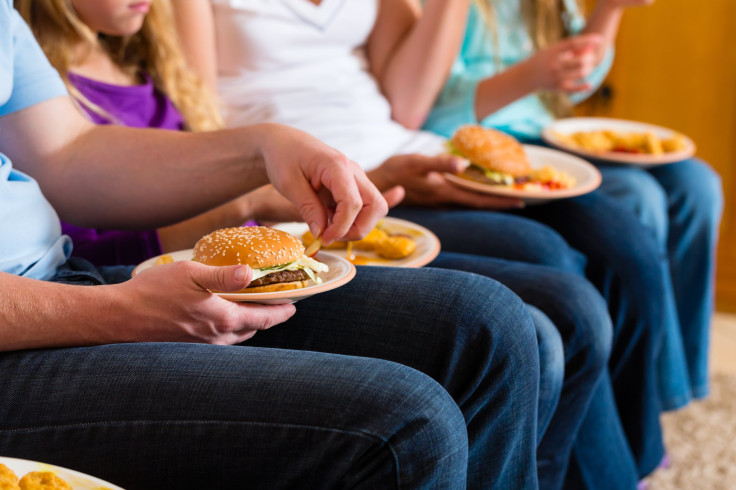Dad Bod Is Real: Weight Gain Is Common Among First-Time Fathers

New research released today lends support to the 'Dad Bod' phenomenon, otherwise known as that precarious state of being slightly heavier than the average fatherless guy.
Via a lengthy analysis of over 10,000 men followed from their teen years to early adulthood, the study found that men, on average, gained weight after they became first time fathers, while their childless counterparts actually lost a pound or two over the same time period. The effect even applied for those pops who weren't living with their children.
In order to come to their conclusions, the authors looked at twenty years worth of data from a longitudinal study that, among other measurements, recorded the BMI of its participants at four different periods of their lives — in early and late adolescence, and when they were in their mid-20s and early 30s.
According to a news release by Northwestern University, where several of the study authors are based, the study found that the typical six-foot man who becomes a dad living with their children gains an average of 4.4 pounds after fatherhood, while the displaced daddy gains about 3.3 pounds; the same non-dad version lost about 1.4 pounds.
Their findings were independent of other factors known to influence weight gain, including marriage status.
"Fatherhood can affect the health of young men, above the already known effect of marriage," said lead author Dr. Craig Garfield, associate professor of pediatrics and of medical social sciences at Northwestern University Feinberg School of Medicine and attending pediatrician at Ann & Robert H. Lurie Children's Hospital of Chicago, in a statement . "The more weight the fathers gain and the higher their BMI, the greater risk they have for developing heart disease as well as diabetes and cancer."
As for why fathers pack on the pounds, the authors speculate that it's due to a number of overlapping reasons.
"You have new responsibilities when you have your kids and may not have time to take care of yourself the way you once did in terms of exercise," Garfield said. "Your family becomes the priority."
Additionally, it could be as simple as having more food on the dinner table. "We all know dads who clean their kids' plates after every meal," said Garfield, who admits to swiping his own children's leftover pizza.
The pie-filled silver lining to these results, according to Garfield, is that fatherhood can provide more opportunities for medical providers to come into contact with young adult men, who are notoriously resistant to seeing a doctor regularly.
"New dads are coming into the health care system as a pediatric chaperone," Garfield said. "This is an opportunity to talk about things that are important for dad's health and the child's health and to offer dads nutritional counseling and mental health education."
Source: Garfield C, Rutsohn J, McDade T, et al. Longitudinal Study of Body Mass Index in Young Males and the Transition to Fatherhood. American Journal of Men's Health. 2015 .
Published by Medicaldaily.com



























